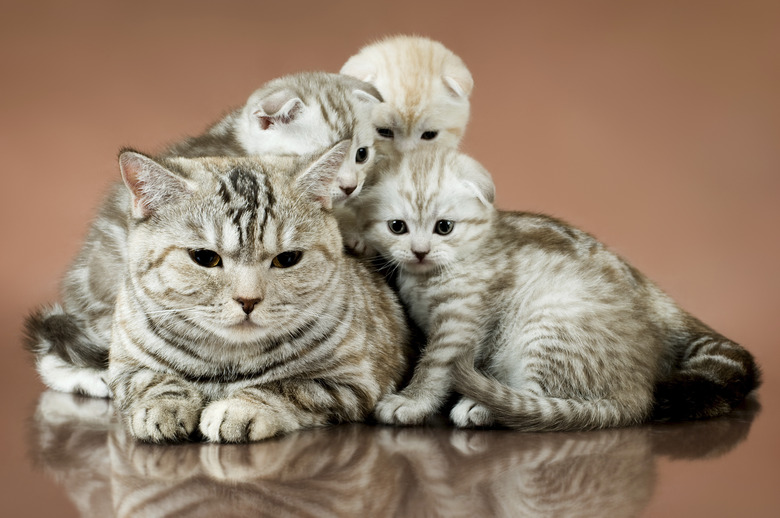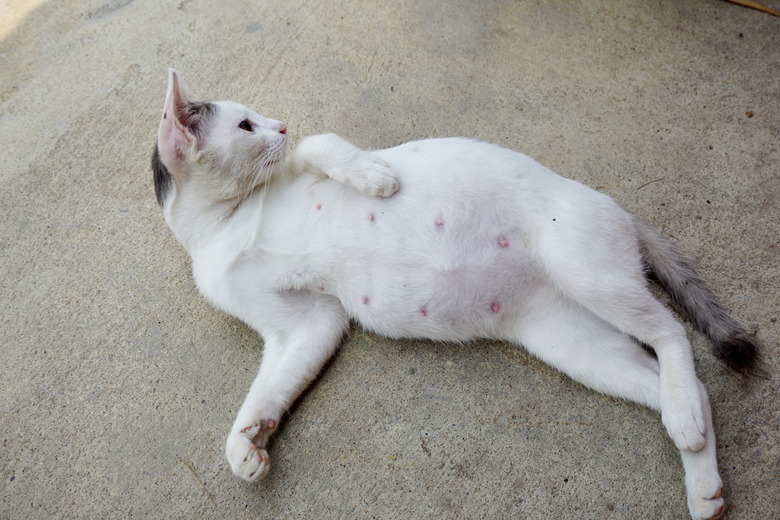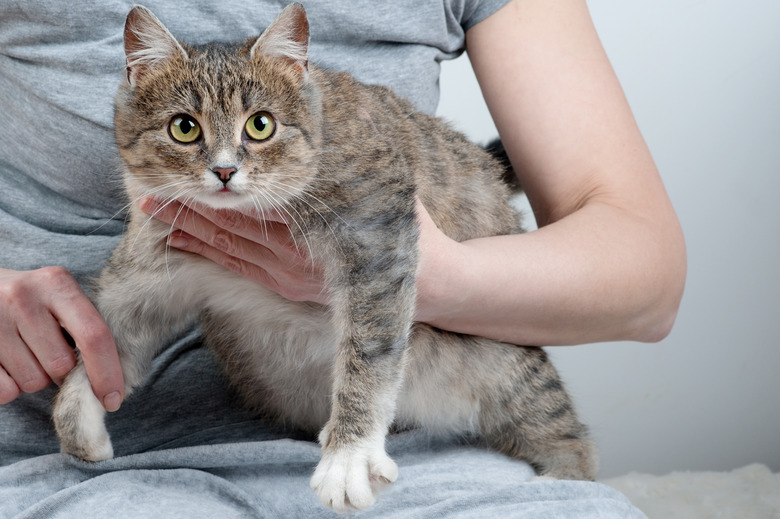What Are The Symptoms Of A Cat Going Into Labor?
Approximately two months after conceiving, a female cat gives birth to her litter. Kittens may not arrive for 12 to 36 hours after the initial signs of labor appear, such as behavior, appetite, and temperature changes. Keep an eye on your cat, but interfere as little as possible. If your cat stops eating and appears restless, chances are that kittens will arrive soon.
Signs of labor in cats: Nesting
Signs of labor in cats: Nesting
A few days prior to delivery, your cat will begin nesting, or creating a place in which to give birth. Provide her with a suitable nesting box, or she will make a birthing spot on her own, in your closet or some other out-of-the-way place. The nesting box should be large and long enough so the mother has plenty of room and kittens can't fall out of it.
Line the box with newspaper followed by a clean towel or blanket you don't mind disposing of. Place the box in a quiet, draft-free area of your house, and keep other pets or kids away from it. An area free of drafts is important because kittens are not able to regulate their body temperature.
Signs of labor in cats: Behavior changes
Signs of labor in cats: Behavior changes
Approximately a week before your cat goes into labor, you may notice some behavior changes. Your cat may become reclusive and hide as much as she can. Other times, pregnant cats become very affectionate. This is especially true if the cat has a very close relationship with one of her caretakers. A cat who becomes more affectionate will want her caretaker to be close by at all times and may seek reassurance from him or her.
Signs of labor in cats: Temperature drop
Signs of labor in cats: Temperature drop
If you have experience delivering puppies, you know that a drop in the mother's temperature means birth within 24 hours. A drop in temperature also signals impending delivery in felines — but not as reliably as in canines.
A cat's normal body temperature ranges between 100 to 102.5 degrees Fahrenheit. Take your pregnant cat's temperature daily as her due date approaches. You can take your cat's temperature under her armpit if she tolerates it. When your cat's temperature falls to 99 degrees, odds are she'll deliver within a day or two.
Signs of labor in cats: Appetite decrease
Signs of labor in cats: Appetite decrease
Shortly before your cat goes into labor, she may experience decreased appetite. This should be obvious to the caretaker as most cats have an increased appetite in the last weeks of her pregnancy. The lack of appetite may be a result of the pressure of the kittens pushing against the mother's stomach. General anxiety may also cause a lack of appetite shortly before labor begins.
Interrupted labor in cats
Interrupted labor in cats
Interrupted labor is a fairly common occurrence in cats and is considered normal. In the case of interrupted labor, a mother will stop straining, suckle the kittens she's already birthed, rest, and accept food despite having more kittens yet to birth. This resting period can last 24 to 36 hours before the mother begins to strain once more and birth the rest of her kittens normally.
Labor complications in cats
Labor complications in cats
Most cat deliveries proceed smoothly, but there are always exceptions. When your cat reaches the second stage of labor — the actual delivery — her contractions become strong and painful and she pushes out the kittens.
If you notice her pushing hard for more than half an hour with no kitten expelled, or if she's in normal labor for more than four hours without a kitten, contact your veterinarian. If she's produced one or more kittens but remains in labor and goes more than two hours without delivering another kitten, call the vet.


